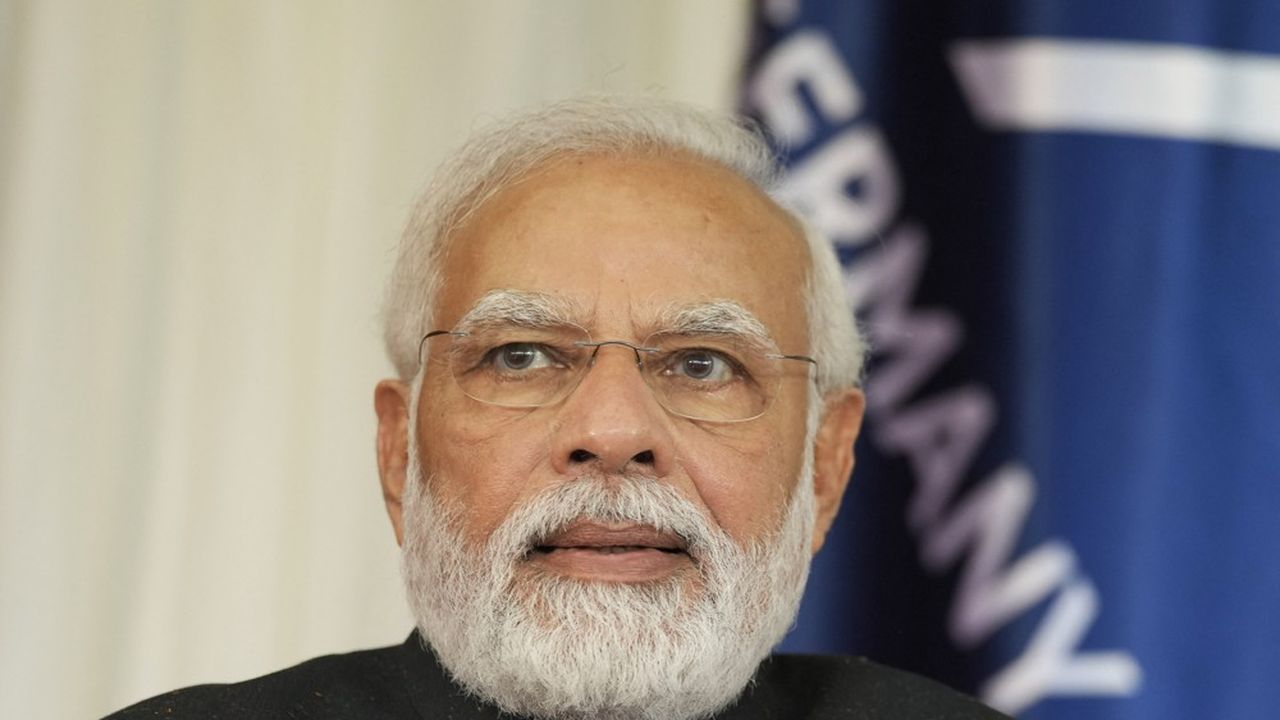India continues its balancing act. The G7, meeting at the summit since Sunday, condemned this Tuesday in a press release of Russia’s “illegal” invasion of Ukraine. The five developing countries (South Africa, Argentina, India, Indonesia and Senegal) invited to the occasion agreed to be named in the G7 final communique, but not in the section devoted to Ukraine. A convoluted position that allows them to express their disapproval of the Kremlin’s actions, given the now indisputable war crimes, without having to condemn Russia outright…
As a traditionally non-aligned nation, India has thus finely adjusted its position since the start of the war in Ukraine, without having to cross the yellow line of fault from Russia. On March 25, New Delhi abstained like 34 other countries, including Senegal and South Africa, from voting for a UN General Assembly resolution demanding an immediate end to Russia’s hostilities against Ukraine. India resumed contact on April 7 in a vote establishing Russia’s exclusion from the United Nations Human Rights Council.
Moreover, New Delhi has yet to take the initiative to impose sanctions on the Kremlin. “We have never implemented any sanctions other than those decided by the UN,” Jawad Ashraf, India’s ambassador to France, told “Echos” in early May. And Narendra Modi, Prime Minister of India, has until now been content with deploring the humanitarian and food crises caused by the conflict.
Don’t offend Russia’s allies
For New Delhi, the goal is twofold. This is a question, on the one hand, to meet the demands of the West and, on the other, not to offend Moscow. Because Russia, until recently, was its first arms supplier. This military equipment is mainly deployed along the Kashmir border, an area disputed by Pakistan and China.
Russia also has the power, as a permanent member of the UN Security Council, to block any resolutions in the Kashmir region. It is also potentially useful in restraining the growing influence of Chinese rivals. Therefore, India is a valuable ally for India.
Indian doubles match
Since the beginning of the Russo-Ukrainian conflict, Westerners have criticized India for its ambiguity, to put it mildly, vis–vis Russia. Joe Biden specifically criticized India’s “slightly weak” position. By agreeing to participate in summits such as the G7, India is taking a small step towards Western powers, which have been approached in recent years to counter China’s influence in the Indo-Pacific zone.
India, however, has both. Because Moscow wants to strengthen trade relations with New Delhi. During the BRICS summit on June 19, Vladimir Putin indicated that he wanted to send more of his products to India and China to avoid Western sanctions. And India is already benefiting from this new trade deal. In particular, it buys oil at a high discount from Russia. Prior to the invasion of Ukraine, only 1% of Russia’s oil exports went to India. By May 2022, this number had increased to 18%.
Even if India’s purchases of Russian oil do not fall under American sanctions, the White House has asked New Delhi to choose the “good side of history.” “India’s foreign policy decisions are made in the national interest and we are guided by our thoughts, opinions and interests. Therefore, there is no question of linking the situation of Ukraine to the trade issue”, said the Indian Foreign Minister.

“Twitter junkie. Hipster-friendly bacon expert. Beer ninja. Reader. Communicator. Explorer. Passionate alcohol geek.”







